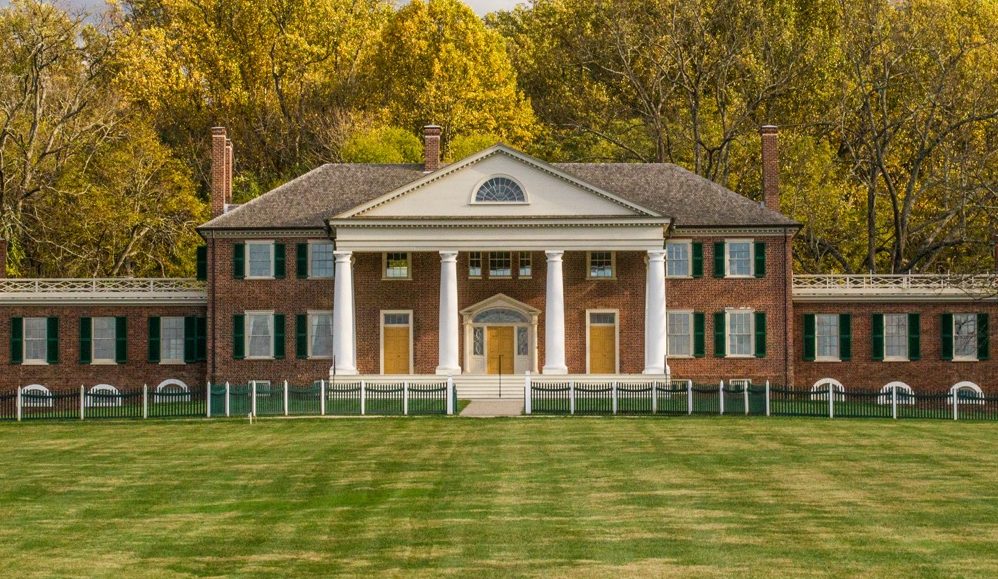Questions linger in Montpelier controversy
With less than a week before the May 16 meeting of the Montpelier Foundation board, initial interviews with 20 candidates put forth by the Montpelier Descendants Committee are underway. But MDC attorney Greg Werkheiser says there are still concerns that the dispute between the two organizations isn’t fully resolved.
“They have refused to answer other questions that would confirm they are done playing games,” Werkheiser says of the foundation.
The controversy over a power-sharing agreement between the foundation and the MDC has raged since late March, when the foundation board reversed a June 2021 decision to rewrite bylaws giving MDC the right to recommend at least half the members of the board as a way to achieve “structural parity” with descendants of enslaved workers. There appeared to be a breakthrough last week when the board announced it would vote on nine new MDC-recommended members at the May 16 meeting, and that all would assume full board membership that day.
In an email, Werkheiser asked the foundation to confirm several points, including that the status of current foundation board members and MDC Chair James French, would not change on May 16.
Werkheiser says the foundation has not answered that question.
In an email, foundation spokesperson Joe Slay says the foundation doesn’t plan to make any public statements in response to MDC questions.
Albemarle County approves plastic bag tax
Stock up on your reusable grocery bags, Albemarle County shoppers—last week, the Board of Supervisors unanimously approved a disposable plastic tax. Starting January 1, stores will charge 5 cents per plastic bag.
The board also approved hikes to the transient occupancy tax for hotel guests, as well as the food and beverage tax. On July 1, the occupancy tax will increase from 5 to 8 percent, while the meals tax will increase from 4 to 6 percent.
The supervisors did, however, vote to decrease the county’s personal property tax rate by 86 cents. The new rate is now $3.42 per $100 of assessed value. And in light of the increase in property values, they opted not to raise the real estate tax rate—it remains 85.4 cents per $100 of assessed value.
These tax hikes come after Charlottesville City Council approved a 1 cent real estate tax and .5 percent meals tax increase last month to help fund the costly renovation of Buford Middle School. City homeowners now pay 96 cents per $100 of the assessed value of their property, while diners pay a 6.5 percent meals tax.
In brief
Closing the book
Last week, Jane Kulow and Sarah Lawson both resigned from the Virginia Festival of the Book. Lawson had worked as the festival’s associate director for several years, while Kulow had served as its program director since 2014, following the retirement of longtime director Nancy Damon. The pair declined to publicly comment on the reason for their unexpected departures.
In the running
Albemarle County Board of Supervisors Chair Donna Price and local emergency department nurse Kellen Squire are running for the Democratic nomination for the newly redrawn 55th District in the Virginia House of Delegates, which includes most of Albemarle County, along with parts of Nelson, Louisa, and Fluvanna counties. The majority of the new district—approved by the Virginia Supreme Court in December—is what was once the 58th District, and has been represented by Republican Delegate Rob Bell for two decades. Squire ran unsuccessfully against Bell in 2017 for the 58th District seat. Bell has not announced if he plans to run for the new seat—however, it may not even be up for grabs yet. If a pending federal lawsuit seeking to force the state to hold House elections this fall under the redrawn maps—filed by former state Democratic Party chair Paul Goldman—is dismissed, elections won’t be held until next year.

Moving forward
The Charlottesville School Board unanimously voted last week to allow Superintendent Royal Gurley Jr. to begin working with the Charlottesville Education Association on a collective bargaining resolution. Board members have expressed support for collective bargaining, but claimed they need more information on how it will work in the school district. Union supporters hope the board will approve a resolution by the end of the school year.
Correction 5/17: Albemarle County’s real estate tax rate remains 85.4 cents—not 78.8 cents—per $100 of assessed value.




